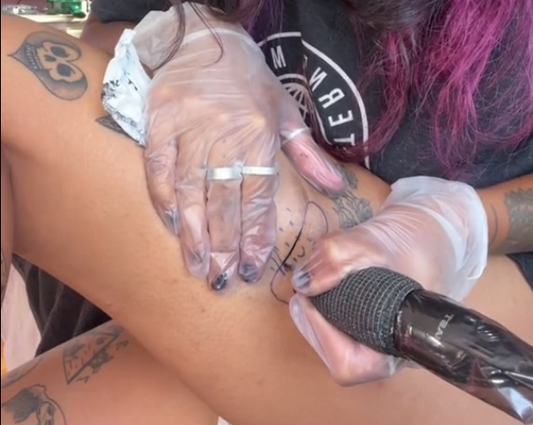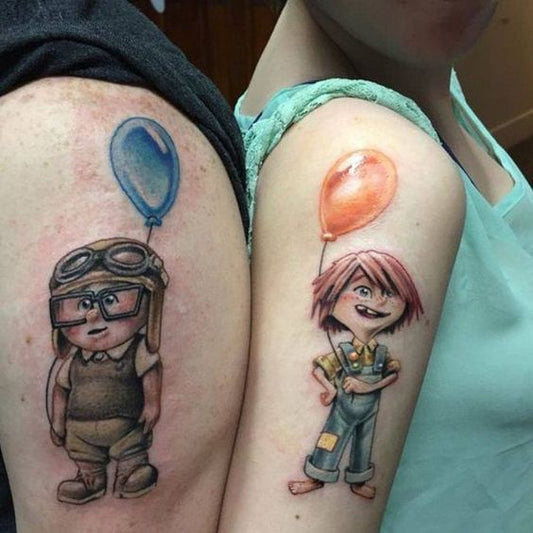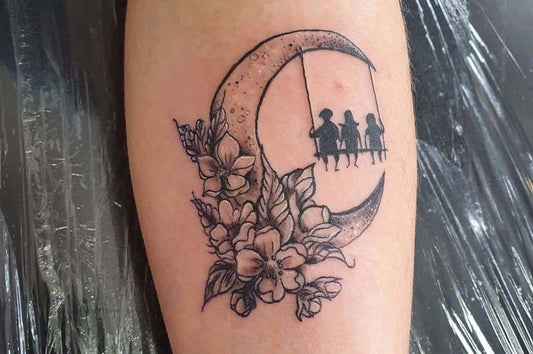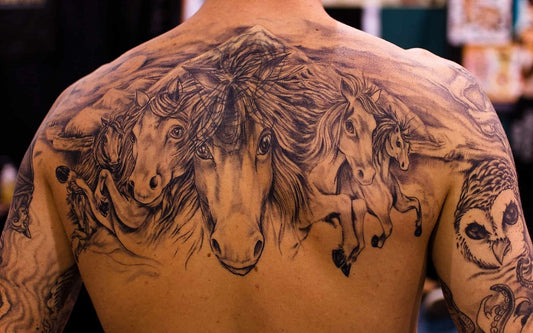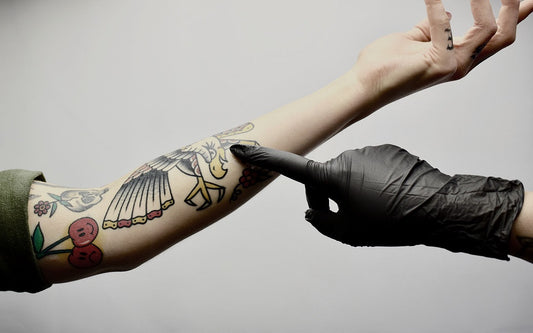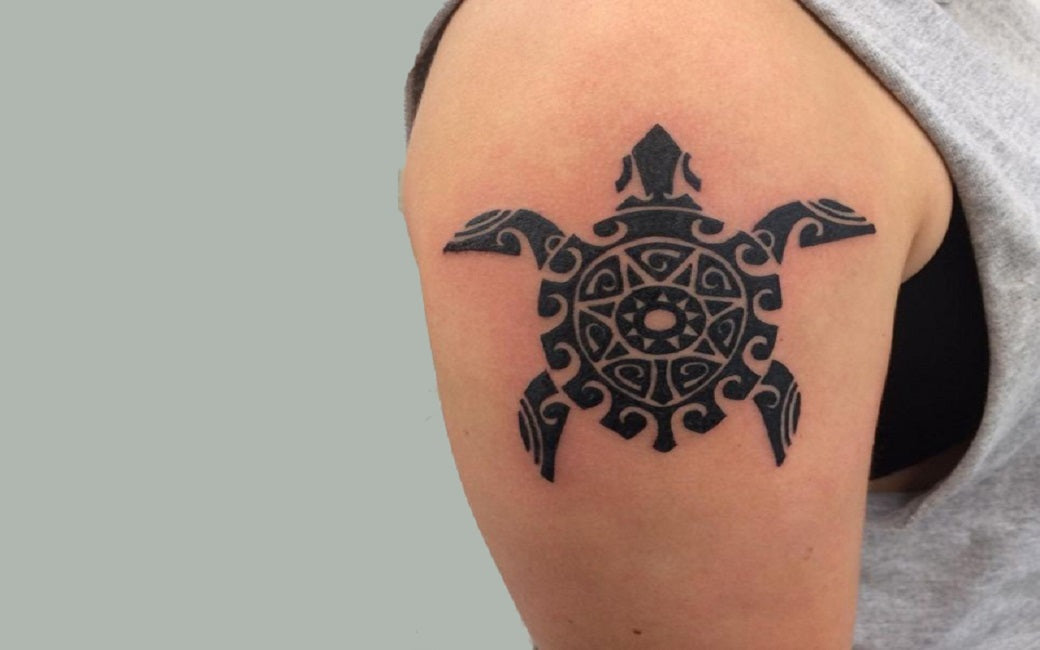
Tattoo Artists: How Much Do They Make?
The process of becoming a professional and licensed tattoo artist can be quite challenging. The road to getting a license might not only be difficult, but it is also pretty expensive due to the extensive education and practice required. Building a client base and providing exceptional service can put any tattoo artist on the map, resulting in better earnings and pay. When the income increases, the struggle to become a tattoo artist makes more sense.
A career in tattooing is excellent for those who are passionate about the craft of tattooing and can master the trade through training, apprenticeship or experience.
Whether you're curious about how much tattoo artists make just for the information or you're considering a career change, you've come to the right place. We'll examine the average tattoo artist's income in the following paragraphs, as well as which states are the most lucrative for tattoo artists. Read through this article to learn everything you should know about the tattoo industry. Let's get started!
1. Tattoo Artists: How Much Do They Earn?
According to the latest report update, tattoo artists in the United States earn $99,956 per year. In other words, they make an average of $48.06 an hour, or $8,330 a month.
It is important to note that this is only an average estimate. It is possible for tattoo artists to earn as much as $300,000, while others may earn as little as $12,000. In 2021, the lowest-earning tattooist will earn approximately $39,000, while the highest-earning tattooists will earn around $260,000 a year.
What is the reason for such wide variations in these numbers? Is there a reason why tattoo artists who earn low wages earn so much more than those who earn high wages?
This is influenced by factors such as the state where tattoo artists work, opportunities for economic advancement, and how much people tip them after a tattoo is completed. Quality of work, reputation, location of the tattoo studio, the cost of owning the studio, tools and equipment, and so much more are all important factors.
At the beginning of their careers, most tattoo artists do not own their own studios. As a result, they do not receive their full earnings since they work for someone else. For every tattoo completed at their shop, the shopkeeper generally earns up to 70% commission. Because of the shopkeepers' commission of up to $70, you will only earn $30 to $40 for a $100 tattoo.
It is possible for even a beginner in the industry to improve their earnings by gaining and growing their clientele with enough time and experience. Tattoo costs increase as the number of customers increases, especially regular and valuable customers. Thus, the tattooist's commission lowers, especially if he or she decides to go solo. By charging more, earning more, and building a stable business, tattooists can earn more.
2. What States/Cities Pay The Highest For Tattoo Artists?
Currently, California has the highest annual salary for tattoo artists in more than one city in 2021. Our focus will be on the cities/states where tattoo artists can expect high annual incomes.
- San Mateo, California – It is the highest-paying city in San Mateo for tattoo artists. Currently, the annual salary for a tattooist in San Mateo is $119,762. Therefore, the hourly wage is approximately $58. In San Mateo, tattooists earn 19.8% (or $19,805) more than the national average of $99,956.
- Boston, Massachusetts – the second highest-earning city of tattoo artists in Boston. An annual salary for tattooists here can reach $117,867. In 2021, tattoo artists in Boston will earn approximately $57 an hour.
- Santa Monica, California – the third-highest paying city for tattoo artists in Santa Monica, as expected. The average annual salary for a tattoo artist in this country is $116,333. For 2021, that equates to an hourly wage of $56. the national average ($99,956).
For this year, these are the top 3 cities for tattoo artists in the United States. As follows: Renton, WA (annual salary $115,954), Berkley, CA (annual salary $115,454), Daly City, CA (annual salary $115,129), etc. The lowest-paying city on this list is Springfield, MA, with an annual salary of $111,578.
Regardless, the aforementioned cities/states have a higher average salary than the national average. Tattoo artists, whether new or experienced, seem to have the best opportunities in these cities.

3. What Makes Some Tattoo Artists Richer Than Others?
A tattooist's earnings depend on several factors, including where he or she works and the state in which he or she lives. Salary is also affected by other factors.
- An amateur or a professional tattoo artist
- A tattoo artist's reputation locally and internationally
- A tattoo artist's formal education and college degree in related fields (although this is not a requirement)
- Whether the tattoo artist is self-employed, independent, or a subcontractor
A tattoo artist's wage is affected by these factors. Once one gains experience, a steady clientele, and builds a reputation, the chance of higher pay and more expensive tattoos increases.
Over time, some tattoo artists become so popular that they have waiting lists of people who want to get tattooed by them. Kat Von D, for instance, charges an hourly rate of $500 and has numerous side businesses, including a global makeup brand.
4. What Does It Mean To Be a Tattoo Artist?
Being a tattoo artist involves understanding and fulfilling the wishes of the clients regarding their tattoos and everything surrounding them. Taking care of one tattoo and client requires hours of dedication, so tattooists must be committed to their craft. It is important to understand, however, that this is just a general job description, and that becoming and being a tattoo artist means so much more. To become a tattoo artist, one must:
- Get formal or industry education – even though it is not required, getting educated in art-related fields can account for many advantages in the tattoo business, including salary. Potential tattoo artists must learn about the craft extensively, through courses and apprenticeships, even without a formal education.
- Probably work for free in the beginning – the road to success in the tattoo industry is tough. Many tattoo artists have to work for free and even have a second job in their early years. Tattooing is not an option for a steady income until one makes a name for themselves.
- Commit to years of practice and experience – to increase the earning power, a tattoo artist has to commit to years of regular practicing and gaining experience. In addition to hard work, practice, learning, research, and work, this requires a lot of time and effort. The importance of practice and experience in tattooing stems from the fact that mistakes are not acceptable.
- Have to pay for education, tools, and equipment from their own pocket – becoming a professional tattoo artist requires investment. Tattoo artists are expected to pay for all their own tools and equipment. In some tattoo studios, basic equipment is available, but if a tattooist wants to improve his or her skills, he or she will likely have to pay for the tools themselves.
5. Conclusions
When a tattooist gains experience and a steady clientele, a career as a tattoo artist can pay off. According to estimates, the demand for body art will incredibly ase approximately 6% in the next few years, which will certainly affect the hourly rate and monthly wage of tattoo artists.
Consider your local demands, offers, and average annual salary when considering a career in tattooing. There is a wide range of numbers from state to state, and city to city, so it is important to do additional research.





